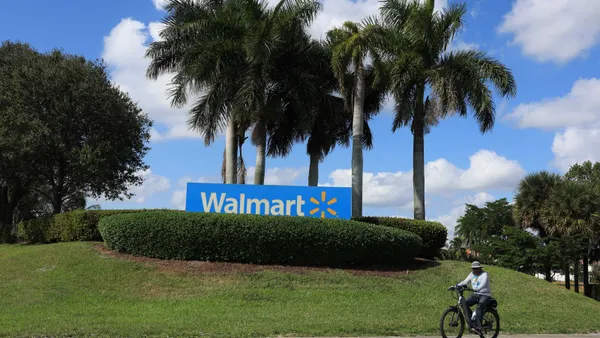Visa is expected to increase some fees it charges merchants and banks for credit card payments starting Jan. 1, according to a notice last month from the processor Global Payments.
That Oct. 10 notice says Visa’s “misuse” fee paid by merchants will jump by two-thirds to 15 cents, from 9 cents per transaction, while a base transmission fee paid by financial institutions will rise to a quarter of a cent from 18% of a penny. The misuse fee would be imposed if a transaction is authorized, but not settled within a certain timeframe.
Visa didn’t respond to a request for comment on the notice. A spokesperson for Global Payments didn’t immediately have a comment.
While the transmission fee is paid by banks that issue the cards, such fee increases are typically passed onto merchants. The notice also said that as of Jan. 1, Visa’s U.S. digital commerce service fee would “be based on authorized transactions rather than clearing and settlement,” with no change in that rate.
The scheduled fee increases come as Visa faces pressure to reduce the fees it charges merchants when consumers swipe their credit cards to pay for goods and services.
Overall interchange fee rates that retailers, restaurants and other businesses pay to process card payments typically range from 1% to 3%, depending on the merchants’ volumes. Those fees are set in conjunction with the banks that issue the cards, and networks like Visa can charge additional network fees.
The San Francisco-based company and rival Mastercard, which dominate the network industry, were under scrutiny at a Senate Judiciary committee hearing last week, being questioned about the fees that are instituted for processing card payments. Republicans and Democrats called the fees burdensome for merchants, especially small businesses, and urged the companies to revamp their systems.
Specifically, the senators were considering the proposed Credit Card Competition Act, which is aimed at injecting more competition into the industry by requiring that a network other than Visa and Mastercard be available for processing transactions.
In testimony before the committee, Doug Kantor, a representative for retail organizations that back the proposed legislation, noted a Visa plan to increase fees. Kantor is general counsel for the National Association of Convenience Stores as well as an executive committee member for the Merchants Payments Coalition.
“Visa is increasing its fees again this January,” Kantor said in the text of remarks for the Nov. 19 hearing. The networks “typically increase fees only in April and October. “We are still investigating the extent of these fee increases,” he said, also referencing another base fee increase that could affect financial institutions.
Nonetheless, the Electronic Payments Coalition, which represents banks that issue the cards and the networks that route them, argue that the interchange fees haven’t increased measurably in recent years, remaining at about 2% since 2017, according to a release issued after the hearing last week.
“The amount businesses pay for credit card services has remained virtually flat for nearly a decade,” the EPC’s release said. “The only reason a business or retailer would pay more for processing services is because the business had a proportionately equal increase in sales.”












